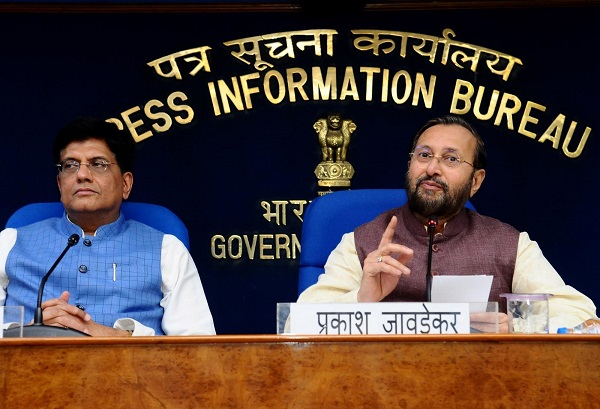
New Delhi, The Cabinet Committee on Economic Affairs (CCEA) on Wednesday approved a sugar export subsidy for the 2019-20 sugar season (October-September) to export 60 lakh metric tonne (MT) of sugar which would cost the government exchequer Rs 6,268 crore.
Speaking to reporters here after the cabinet meeting, Union Minister for Environment and Climate Change, Prakash Javadekar, said that the CCEA has approved an export subsidy of Rs 10,448 per metric tonne (MT) and the subsidy would be directly credited to the farmer’s account on behalf of the mills against cane price dues. Any subsequent balance would be credited to the mill’s account.
The subsidy is in compliance with the World Trade Organization (WTO) norms, the government clarified.
“Lumpsum sugar subsidy will be provided on the expenses on marketing costs, including handling, upgrading and other processing costs, costs of international and internal transport and freight charges on export of up to 60 lakh metric tonne of sugar limited to Maximum Admissible Export Quantity (MAEQ) allocated to sugar mills for the sugar season 2019-20,” an official statement said.
In the wake of surplus sugar production during the 2017-18 and 2018-19 sugar seasons, the ensuing sugar season of 2019-20 is expected to commence with an opening stock of 142 lakh MT.
Commenting on the decision, Avinash Verma of the Indian Sugar Mills Association (ISMA) said: “Six million (60 lakh) metric tonne of exports will not only reduce the surplus sugar inventory next season, but it will also give additional cash flows to the tune of around Rs 18,000 crore, including the subsidy amount. This will help the mills reduce carrying costs and interest burden as also help them pay cane price to farmers on time.”
“Overall a very timely decision of the government to assist the sugarcane farmers and the millers,” he added.
According to Ajay Kakra, leader for food and agriculture at PwC India, the cabinet decision comes as a breather for the stagnant sugar industry.
“We hope the benefits percolate down to the farmers in the form of pending payments. However, much needs to be done to revive the industry,” Kakra added.









